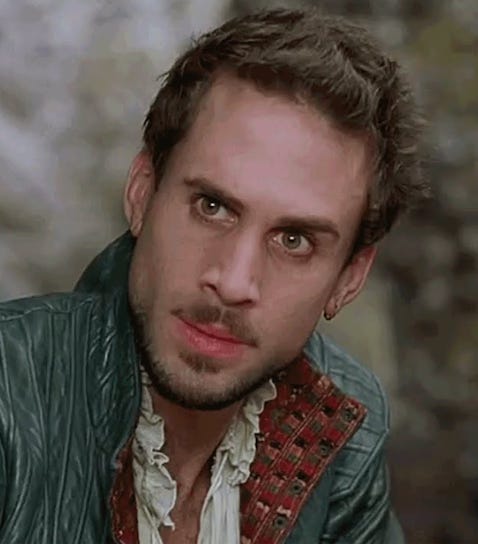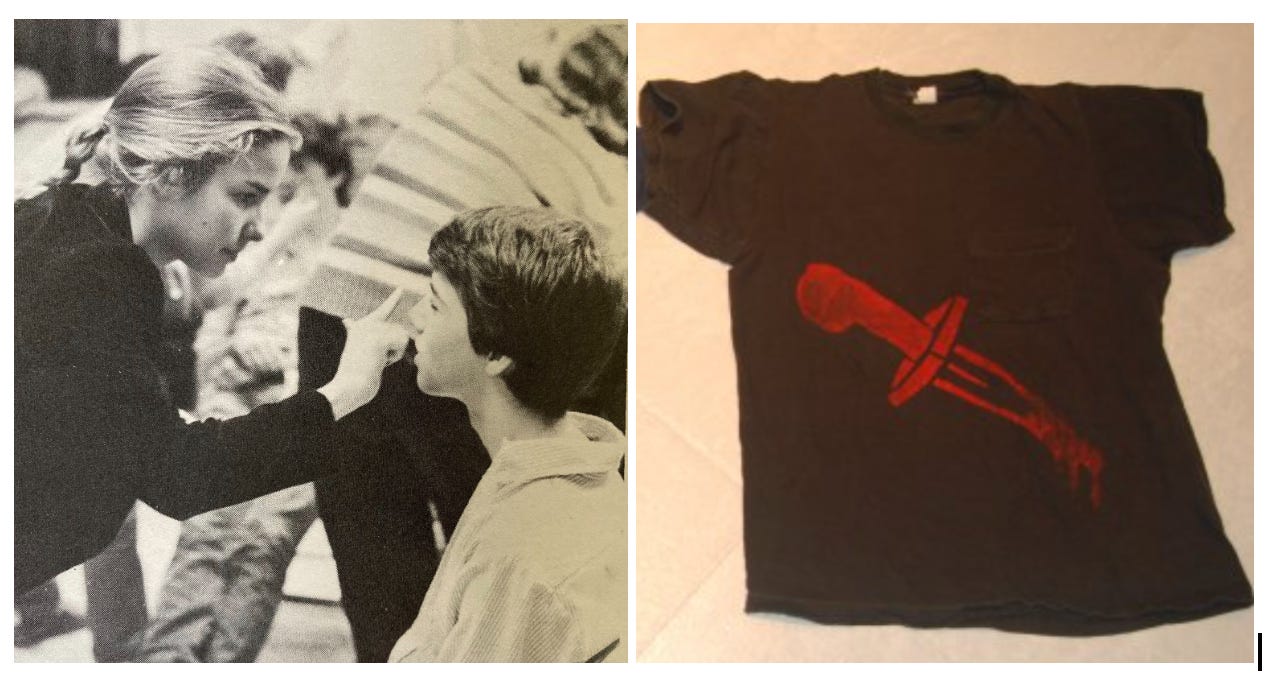Student Theater is a Triple Threat by Anne Lutz Fernandez, July 9, 2023
(Tip of the hat to Howard Sherman and to Jaime Rogers, Austin Community College)
"It makes sense that the far-right would see the school auditorium
as a dangerous space and student theater as a triple threat.
It’s where kids are encouraged to engage in learning that authoritarians discourage."
Student Theater is a Triple Threat
Amid a censorship wave, remembering being a theater kid

I was a Kansas teenager headed for a stifling future as a rich man’s wife. A new mother and immigrant living in a New York tenement building. A housecleaner working for an eccentric Ohio family on the eve of a world war.
That was just onstage. Backstage, I was a set painter and a makeup artist. Out front, publicist and house manager.
I was a theater kid.

I’ve been reminded of what it meant to be a theater kid as far-right efforts to restrict curriculum, literature, and speech reach drama programs.
In May, WaPo’s Hannah Natanson described how more districts are being pushed “to nix or alter school theatrical productions deemed objectionable — often because they feature LGBTQ characters or deal with issues of race and racism.” Last week, Michael Paulson at the New York Times showed school theater directors are responding as expected with self-censorship: two-thirds reported being swayed by backlash fears as even previously uncontroversial plays and musicals come under attack. Among the head-shaking moments in the Times piece: a stage version of “Shakespeare in Love” vetoed due to cross-dressing, a historical element of Elizabethan theater.

Like the classroom and the library, the auditorium has been and should be a safe space for learning. It may be where I learned the most in high school.
Exploring the process of becoming
As a theater kid, the school auditorium was the figuring-out place, the place to try on personalities and identities, where being someone else led to knowing myself.
That auditorium was where misfits fit in, where outsiders became insiders and the uncool chilled. It was and remains a refuge for many, especially LGBTQ+ youth. Even when representation is denied on stage, this remains: Student theater has a long history of helping LGBTQ+ youth find community, acceptance, and health, a history that helps make it a safer place for all kinds of students.
Outside the auditorium, my anxiety ruled. The right address, the right clothes, the right outlook? I didn’t have them. What I had instead was a place where I could live on sets, try on costumes, cop new attitudes until I found my self and its home. Theater gave us kids the freedom to become, and we gave that freedom back to each other.
My peak high school theater experience came when I was cast in William Inge’s “Picnic.” In the play, a handsome drifter comes to town, upending the narrow expectations that had been set for my character, Madge. The 1953 play seemed fusty and outdated to me at the time, but it sadly wasn’t. Inge focused on multiple female characters whose lives were closely circumscribed. Their frustration still resonates today. So does the inspiration of one breaking free. Many of the productions now being censored similarly ask, “Look at this society. Is it deciding who someone should be? Or do they get to decide for themselves?”
Building competence and confidence
A number of years ago, when we were all firmly in middle-age, my high school theater group held a reunion. One of the hosts was a woman who had stage-managed many of our shows, working alongside the faculty director. I recalled my teenaged perception that she seemed like a grown-up. Though I didn’t know it back then, I was observing something called competence.
Up until then, our competence, such as it was, had been measured by adults, mostly in the form of grades given by adults, who had decided what we should care about and what kinds of performances mattered. Academics was our assigned job. But there was this stage manager: a sixteen-year-old girl doing a real job, a complex one requiring depth of knowledge and logistical and interpersonal skills, and absolutely killing it.
The drama teacher (thank you, Mr. Sommer) was the director, but the productions were ours. We owned them, working as a team, doing everything from sourcing costumes and props to designing and building sets to engineering lighting and sound. There was an exceptionally high level of self-government, and it worked.
I don’t know what possessed me to try to act. In an early speech, Madge fantasizes about getting discovered, becoming important, being seen. That’s likely what I was looking for. Though auditioning terrified me and memorizing lines was painful, I did it, building confidence by making myself do something difficult. Not as difficult as the step Madge takes at the end of Inge’s play, but not nothing.

Taking on others’ perspectives
Theater arts require students to stand outside of themselves, adopt different perspectives, enter other worlds, see new possibilities.
I cringe thinking about the accent I attempted as Olga Olson in “Street Scene,” a play we were sure had been chosen because a large cast would allow dozens of students to participate. But I doubt the multiethnic setting and set of characters was an accident. For some of us with recent immigrant ancestors, the empathic leap wasn’t too far, just a generation or a few, but the choice allowed for a greater diversity of perspective than did most of the plays we staged—or life in our suburb just miles from the setting of “Gentleman’s Agreement.” I suspect our director knew we could benefit from treading the boards in other people’s shoes.
The authors of a study on building students’ empathy outlined how theater is an “empathy playground” encompassing activities proven to lead us to become more empathetic toward others, including reading fiction and acting or “affective roletaking.” Even if it doesn’t increase empathy, acting makes it easier to read others’ emotions, a key interpersonal skill.
Being a theater kid helped me to become, to build, to understand.
It makes sense that the far-right would see the school auditorium as a dangerous space and student theater as a triple threat. It’s where kids are encouraged to engage in learning that authoritarians discourage.
Independence and self-determination for young people are not on the agenda of today’s broader GOP, as Virginia Governor Glenn Youngkin’s spokesperson made clear in a press statement this week when she said, “Children belong to their parents.” A healthy adolescence is not spent being treated like a belonging; it is spent developing a positive self-identity, a sense of efficacy, purpose, and belonging. The attempt to stoke fear about social-emotional learning (SEL) in schools and the focus of book bans that reduce representation reveals the movement’s desire to shut down avenues by which children develop empathy for others—including empathy for those different from them—and for themselves.
Because today’s students deserve the fullest opportunity to see and be seen, they deserve a society that doesn’t censor school theater but honors and facilitates its work. A few groups worthy of support:
Thanks for reading Nobody Wants This! Subscribe for free to receive new posts and support my work.